“What cosmetic tattoo is not allowed during pregnancy?” is a question we get asked often in our Brisbane studio. And fair enough — pregnancy is a time when you’re super aware of what goes into your body, what touches your skin and even what treatments are safe long term. We’re Uliana Kasperska and Anastasia Petkov, two certified cosmetic tattoo artists with over 15 years’ experience across Europe and Australia, and we believe in straight answers, not marketing fluff.
During pregnancy, your skin type, healing ability and overall health conditions change. That means semi-permanent makeup procedures — like lip blush, eyebrow tattoos, eyeliner tattooing or even Scalp Micropigmentation — are not allowed. Below, we’ll break down the risks, why the risk of infection is higher and why waiting until after pregnancy gives you better, safer results.
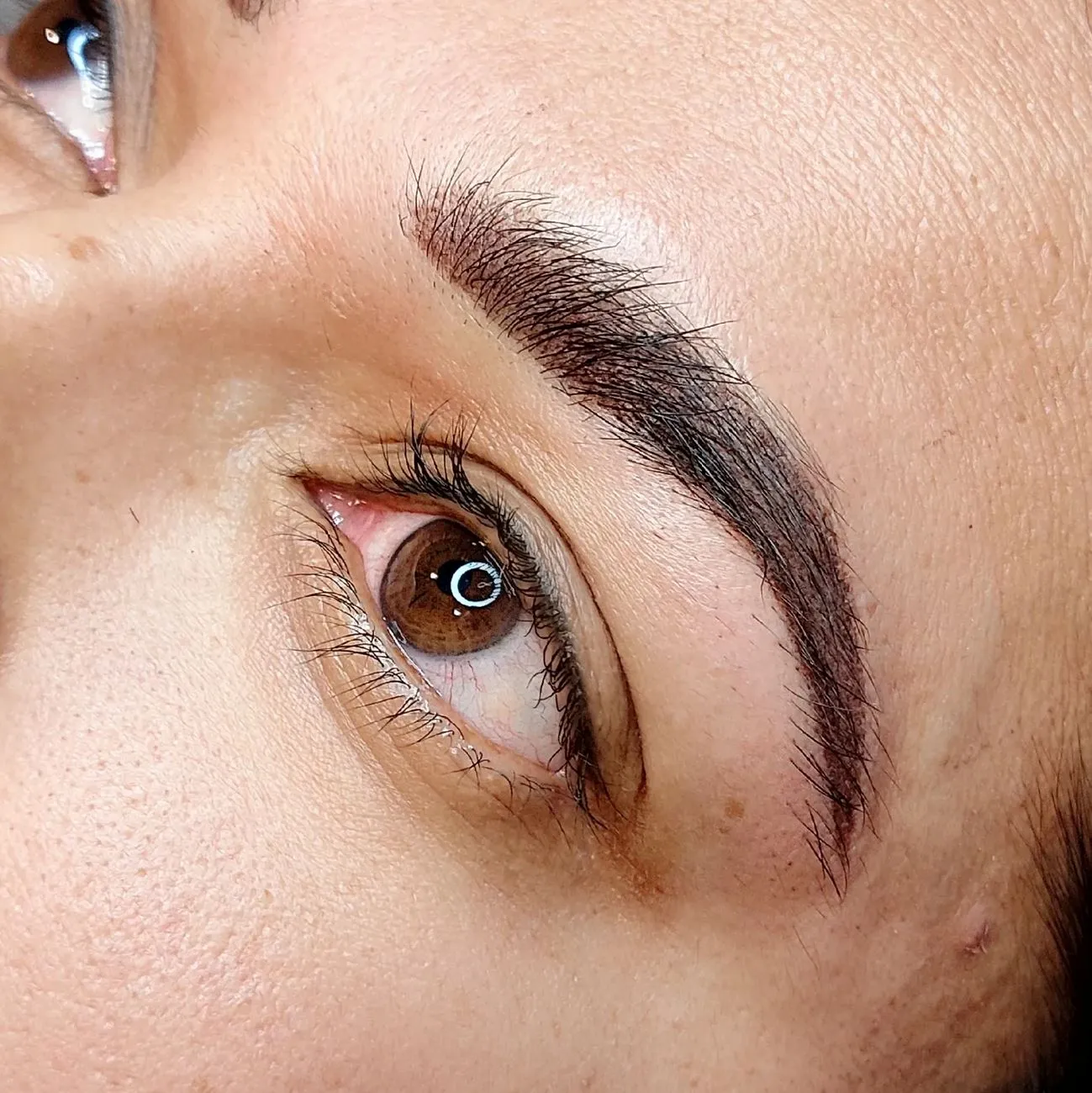
Table of Contents
Why Cosmetic Tattooing Can Be Risky While Expecting
Cosmetic tattooing always involves breaking the skin, whether it’s done with a handheld tool for microblading or a digital machine. That alone raises the risk of infection, but pregnancy adds extra complications. Your immune system works differently, your skin colour may change due to melasma or increased pigmentation and your ability to recover from procedures is slower.
Wound healing issues are common during pregnancy. A treatment that normally heals clean and predictably could suddenly result in poor healing, scarring or patchy pigment. That’s why pregnancy is a red flag for all semi-permanent makeup.
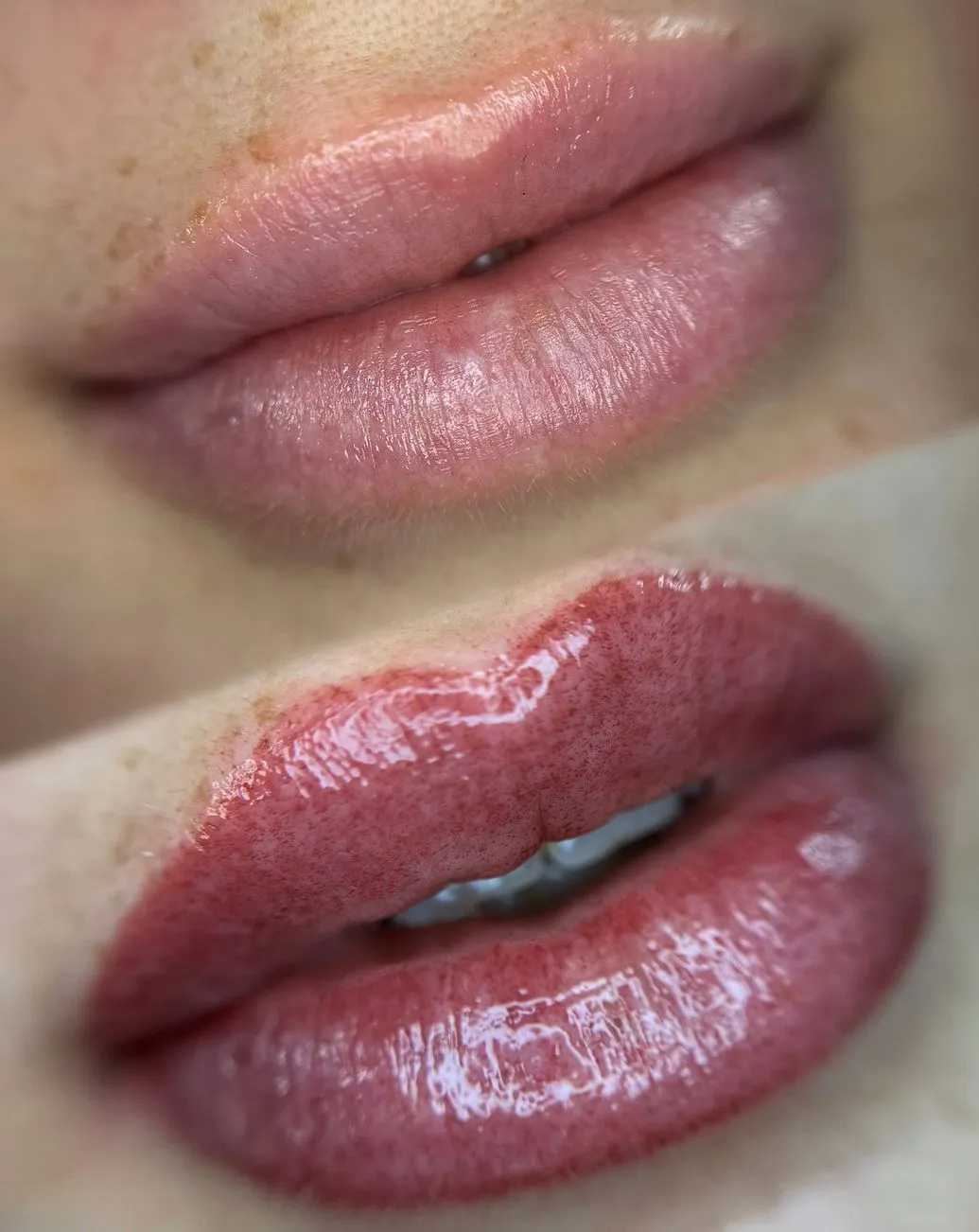
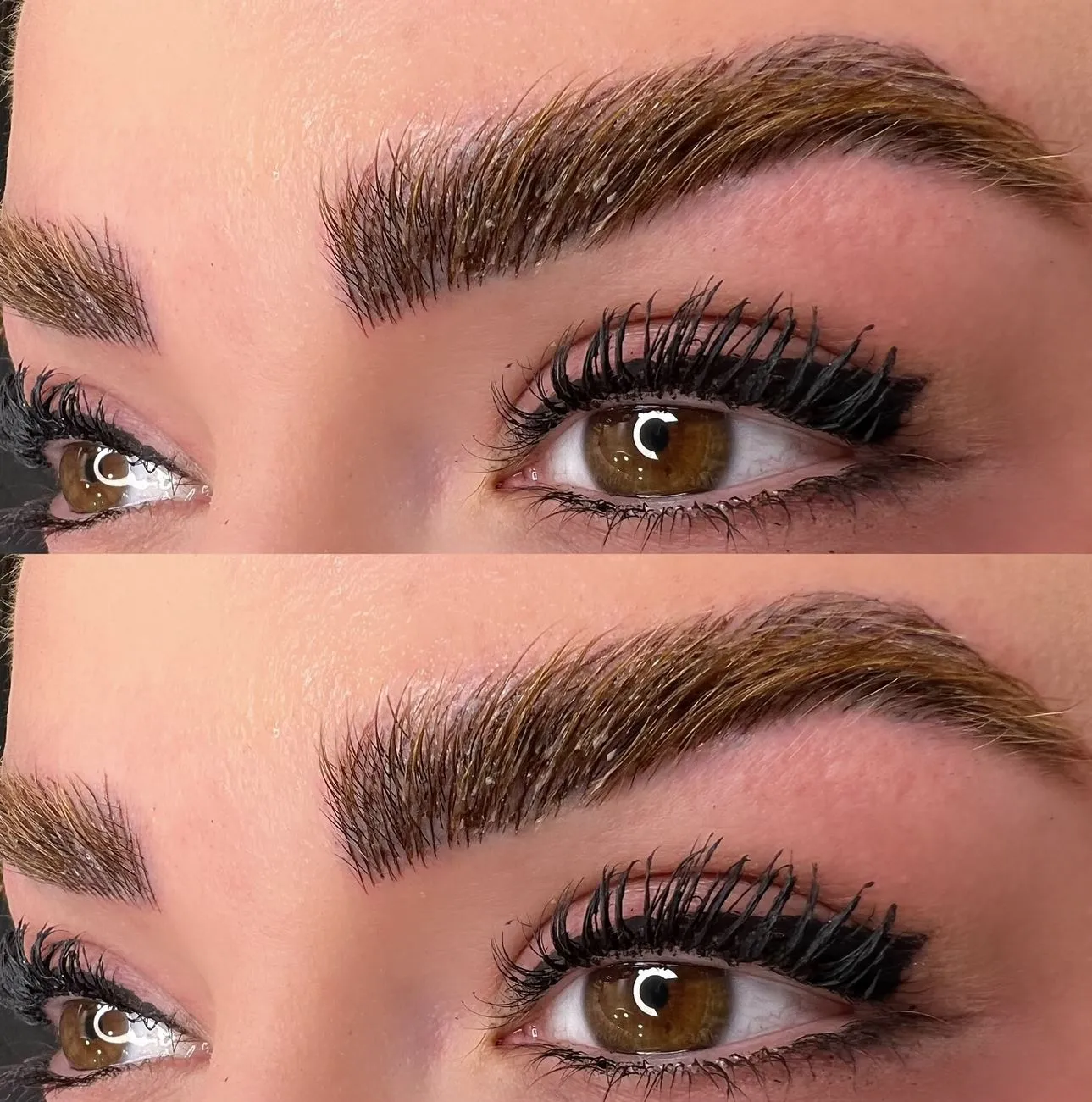
When Cosmetic Tattooing Should Be Avoided
The simple answer is none. Every cosmetic tattoo, big or small, carries risks during pregnancy. Here are the main ones people ask about:
- Lip blush — Lips swell more, pigments may heal unevenly, and poor aftercare is harder to manage when you’re already dealing with pregnancy fatigue.
- Eyebrow tattoos (powder brows, ombré brows, microblading) — Hormonal skin changes can push pigment out or cause strange colour shifts.
- Eyeliner tattooing — The thin eye area is more prone to swelling and infection, and numbing agents aren’t considered safe in pregnancy.
- Scalp micropigmentation (including hairline & scalp micropigmentation) — Not recommended due to increased bleeding and pigment unpredictability.
- Areola repigmentation or scar camouflage — Postpone until after delivery, as these are more delicate areas.
Even an eyebrow tattoo coverup or colour correction will have to wait as the same wound healing and infection risks apply.y.
Numbing Agents And Pigments
Most procedures use a numbing agent cream to keep you comfortable. These contain lidocaine or similar ingredients, which haven’t been tested for safety in pregnancy. While safe in tiny amounts topically, pregnancy is not the time to take chances.
Pigments themselves contain ink particles designed to sit in the dermis. Again, safe for most adults, but never tested on pregnant women. Without data, reputable artists won’t expose you or your baby to unknown risks.
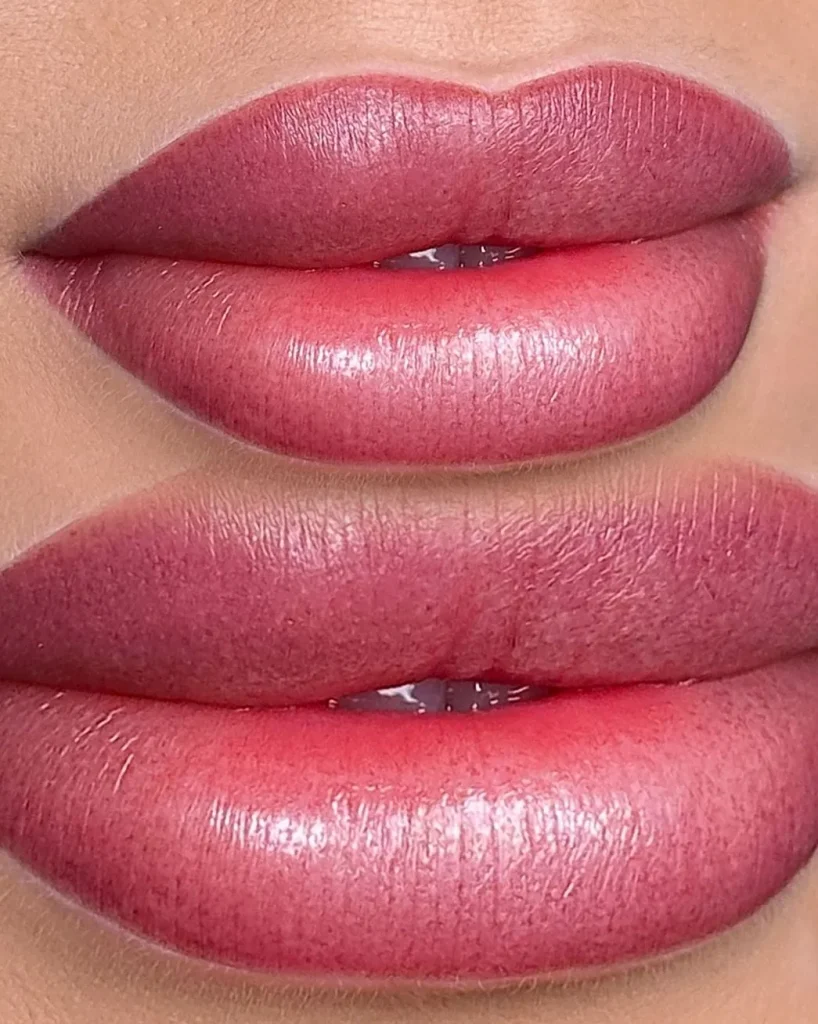
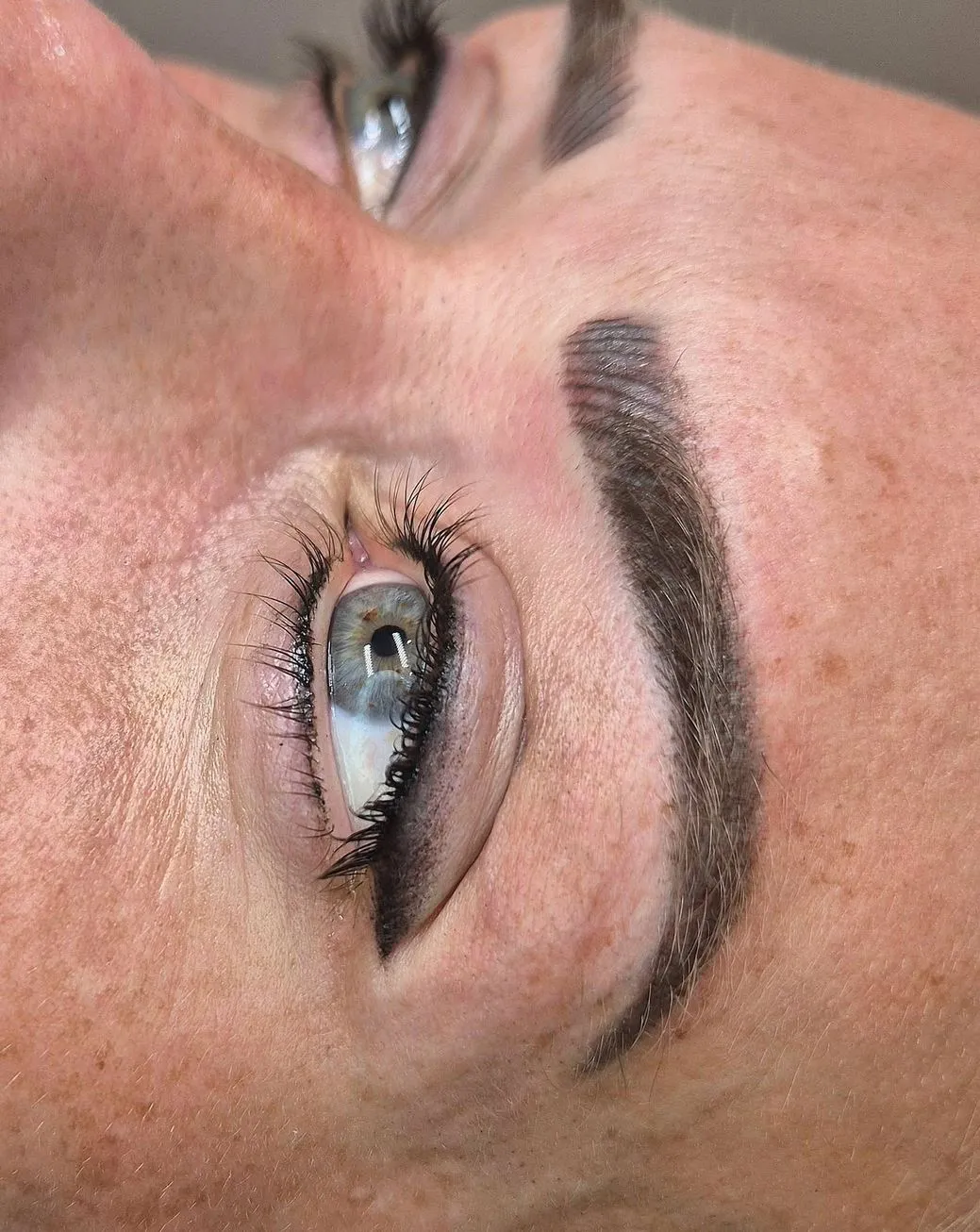
Hormones, Skin Types And Healing
Pregnancy hormones can make oily skin oilier, dry skin flakier and even change how your brows or lashes grow. Some women notice darker skin colour patches (melasma), which can distort how pigments look once healed.
This is why semi-permanent makeup during pregnancy often results in poor healing or short-lived results. You could go through the pain, cost and downtime only to find the pigment fades or heals patchy.
We’ve seen clients come back months after giving birth, asking for corrective work because their brows or lips didn’t heal properly during pregnancy. It’s always better to wait than to risk needing cosmetic tattoo removal later.
Sun Exposure, Aftercare And Longevity
Queensland sun is no friend to tattoos. Sun exposure already fades pigment faster, but during pregnancy, your skin is more photosensitive. Add in the fact that many mums-to-be struggle with poor aftercare (because let’s be honest, chasing hydration and sleep takes priority), and your results won’t last.
We normally talk about treatment for longevity, like following aftercare sheets, using SPF and booking a perfecting session. But during pregnancy, even the best aftercare can’t prevent unpredictable results.
Safe Beauty Alternatives for Expectant Mums
Even though semi-permanent makeup is off limits, you can still feel polished and confident with safer treatments:
- Tinting for brows and natural lashes
- Henna brows for a plant-based tint
- Lash lifts (generally safe, though always patch test first)
- Light shaping and maintenance rather than permanent changes
These will give you a confidence boost without the risks of infection, pigment unpredictability or wound healing problems.
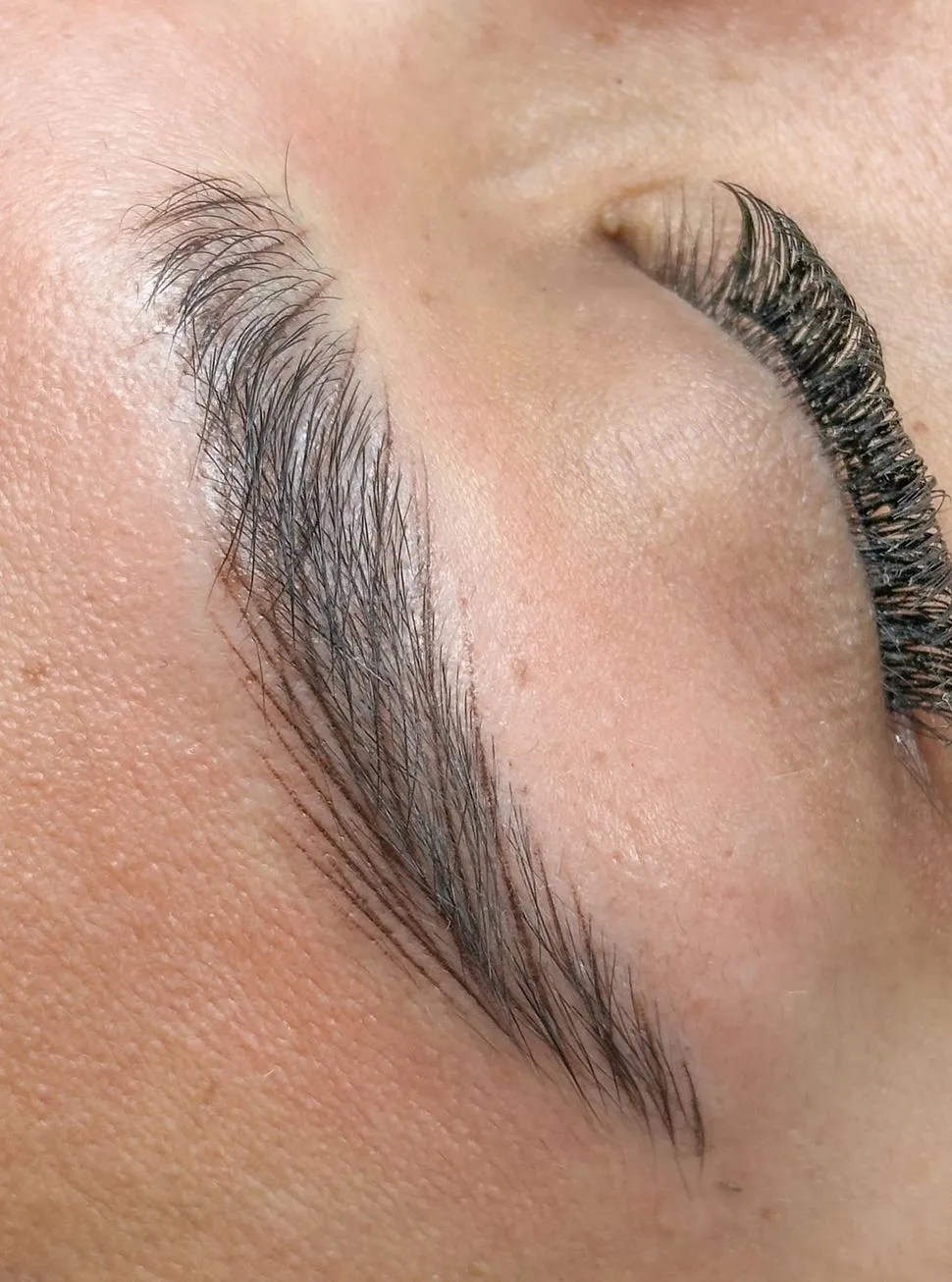
Statistics On Cosmetic Procedures And Pregnancy
According to the Australian Institute of Health and Welfare, around 70% of women experience skin changes during pregnancy. These range from pigmentation changes to increased sensitivity and slower healing — all factors that impact cosmetic tattoo outcomes.
| Treatment | Safe In Pregnancy? | Key Concerns |
|---|---|---|
| Lip blush | Not allowed | Swelling, infection, poor healing |
| Eyebrow tattoos | Not allowed | Hormonal pigment shifts, uneven retention |
| Eyeliner tattoo | Not allowed | Numbing agent risks, swelling |
| Scalp micropigmentation | Not allowed | Bleeding, colour unpredictability |
| Lash tint/lift | Generally safe | Patch test, avoid strong chemicals |
| Brow henna | Generally safe | Use a natural, ammonia-free formula |
When Can I Book Again?
So when can you book? Most cosmetic tattoo artists (ourselves included) recommend waiting at least 3–6 months postpartum when your body is more stable. If you’re breastfeeding, certain numbing agents and pigments may still pose risks, so timing is key.
We also look at:
- Skin diseases or conditions like eczema or dermatitis that flare up post-pregnancy.
- Issues with wound healing if you had a C-section or stitches.
- Whether you’re ready to commit to proper aftercare — because newborn life doesn’t always make that easy.
Final Thoughts
So, what cosmetic tattoo is not allowed during pregnancy? All of them. From lip blush to eyebrow tattoos, eyeliner to scalp micropigmentation — all are in the “not now” category. Pregnancy changes your skin, healing ability and overall safety profile, making poor results and health risks more likely.
The good news? Cosmetic tattooing isn’t going anywhere. Once your body is ready, you can book that perfecting session and get results that actually last. Until then, focus on safe beauty tweaks like tints and lash lifts to feel like yourself again.
For anyone considering future treatments, our Cosmetic Tattoo Studio Brisbane Face Figurati can guide you, practice safe and get natural results when the time is right.

Using only natural and eco-friendly components for cosmetics
Special unique receipes are the secret of our spa procedures.
Experienced and skilled staff will make your perfect day
Most of our beauties come from the recommendation
FAQ
Can I get semi-permanent makeup if I’m only a few weeks pregnant?
No. Whether it’s week 2 or week 20, all cosmetic tattoos are considered unsafe in pregnancy.
What if I already had an eyebrow tattoo appointment booked?
It should be postponed. Even a touch-up or cover-up session carries the same infection and pigment risks.
Is Scalp Micropigmentation allowed during pregnancy?
No. Both standard SMP and Hairline & Scalp Micropigmentation must wait until after pregnancy due to increased bleeding and poor healing outcomes.
What about cosmetic tattoo removal during pregnancy?
Laser or saline tattoo removal isn’t advised either, as both involve stress on the body and possible pigment or skin reactions.
